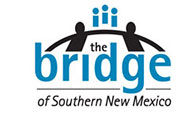COVID’s Double Whammy on Workforce
As published in the Las Cruces Sun-News, February 1, 2021
COVID is having a double-whammy on workforce: disrupting the rate at which individuals are pursuing college, as well as displacing a surprisingly high number of degree holders in specific fields.
Two pieces recently highlighted both the disparities in, and the opportunities for, connecting education to employment in our COVID-crazy times.
First, the guru of increasing connections between education and workforce, Dr. Anthony Carnavale of the Georgetown Center on Education and Workforce, looked into the impact COVID had on college enrollments in When Back to School Meets Stay at Home. During the Great Recession, as people lost their jobs, college enrollments went up 20%. Not so in COVID.
Carnavale’s team found a 4% decline in university enrollments and 10% decline in community college enrollments nationwide. Households with incomes under $50,000 were more likely than higher-income households to change their college plans for Fall 2020: cancel altogether, change the number of hours, enroll in a different program, or take classes in a different format. In New Mexico, 81% of students changed their plans, the fifth highest rate in the nation.
The impact of those changes on personal incomes and the economy could be devastating. According to Carnavale, “Having at least some postsecondary education increases an individual’s likelihood of finding a good job and earning more over the course of a lifetime. Changes in students’ postsecondary plans can disrupt their long-term educational trajectories, particularly when they cancel their plans outright. Students who delay their enrollment are less likely to enroll in college, and students who take time off from college risk never completingtheir credentials. This scenario is particularly worrisome for low-income students, who were most likely to have canceled their fall postsecondary plans, even though they stand to benefit most from the economic mobility associated with higher education.”
Conversely, in the report, Good Jobs in Bad Times, published by Burning Glass, authors Jeffrey Selingo and Matthew Sigelman found that bachelor degree holders had lost their jobs at higher rates from March to May 2020 than those with other levels of education. And the most impacted had the least amount of work experience (0-5 years).
Because entry level graduates and early-career professionals were at greatest risk, the writers sought to provide colleges with new strategies to help students find the best opportunities in the job market by major (“target occupations”) for entry level graduates, as well as occupations (“lifeboat occupations”) that may require less than a four-year degree but instill skills that lead to higher-wage occupations that do require a bachelor’s degree later.
Target occupations spanned 10 majors and offered annual incomes between $40,000 and $83,000. Lifeboat occupations ranged from $35,000 to $58,000 and included jobs like bookkeeping, real estate agents, computer user support specialists, and insurance claims and policy processing clerks.
Undergirding both sets was 14 “Foundational Skills” in high demand in our COVID job market:
- Communication
- Creativity
- Critical Thinking
- Collaboration
- Analytical Skills
- Communicating Data
- Digital Design
- Project Management
- Business Process
- Digital Security and Privacy
- Computer Programming
- Software Development
- Managing Data
- Analyzing Data
To review the full list of Target Occupations by Major and Top 15 Lifeboat Occupations for College Graduates, check out the full report.
The Bridge of Southern New Mexico and Workforce Talent Collaborative have been way ahead on this. We have already identified our top occupations, as well as the path to get there. NewMexicoTrueTalent.org is packed with resources and links to information to strengthen the connections from education to employment.
COVID doesn’t have to crush future careers…it can change them for the positive. Now is the time to use education to prepare the way for employment…now and for the post-COVID future.

